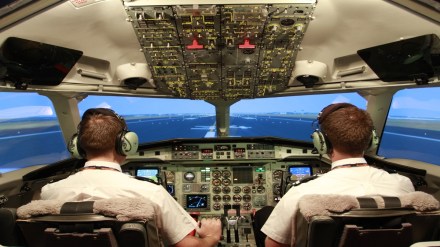By Sumaiya Ali
The aviation industry is an intercontinental trade network that orchestrates a smooth flow of people and cultures worldwide. For Indian pilots, the process of obtaining visas and work permits is potentially the most vital. These specifications accurately correspond to what is acceptable in each particular country, which is of utmost importance for driving through the nuances of it with accuracy and knowledge.
Visa Prerequisites
Most nations require pilots to obtain a valid visa before entering and working within their borders. The type of visa required may differ based on the nature of employment, duration of stay, and bilateral agreements between India and the host country. Common visa categories for pilots include:
Work Visa: Often necessary for long-term employment opportunities.
Temporary Work Visa: Suitable for short-term contracts or training assignments.
Business Visa: This may be applicable for certain consulting or advisory roles.
Work Permit Procedures
In addition to a visa, many countries mandate that foreign pilots obtain a work permit to legally engage in employment activities. The work permit application process typically involves:
Employer Sponsorship
Most countries require the prospective employer to sponsor the work permit application, providing documentation such as job offer letters, employment contracts, and proof of qualifications.
Skill Assessment
Authorities may evaluate the pilot’s qualifications, experience, and language proficiency to ensure they meet the required standards.
Background Checks
Security clearances, criminal record checks, and medical examinations may be necessary.
Application Fees
Work permit applications often involve the payment of processing fees.
Validity and Renewal
Visas and work permits are usually given of a set duration, such as an employment agreement or assignment. Therefore, there is always the risk of being denied an extension or internal relocation. Though pilots are responsible for the control of expiration date, they still need to follow the instructions to initiate renewal procedures well in advance to maintain legal status so that the lapses will never occur again and they will not lose their ability to work.
Reciprocal Agreements
Some countries allow Indian pilots to work on a reciprocal basis or through a simplified process for visa formalities, especially in the countries which have links under Commonwealth nations or through bilateral agreements. The same agreements act to ease the visa or permit processes, but a pilot must comply with the specified criteria.
Crew Layover Considerations
International airline crews often spend layovers of one or two days at their destinations. In most countries, airline crew members listed on the Aircraft Customs and Immigration General Declaration (GD) are exempt from visa requirements during these layovers. The GD, furnished by the airline to the host country’s authorities, contains details about the flight, crew members, and their arrival and departure schedules.
The restrictions compared to the layovers between the airlines differ, but the aircrews are usually given the kind of autonomy during the stops with some countries allowing them to travel without any other document in the restricted areas.
Private Jet Crew Challenges
In contrast to commercial airline crews, pilots and cabin crew operating private jets may face additional hurdles in obtaining visas for certain countries, such as India, China, and Russia. Private jet operators are often not entitled to the GD service, requiring crew members to apply for visas individually. While this creates additional administrative burdens, the unique experiences and luxurious travel associated with private jet operations often compensate for the extra effort.
Additional Considerations
Pilots should also be aware of any additional requirements, such as validating their licences and ratings in the host country, obtaining local medical certifications, and complying with immigration regulations related to family members or dependents accompanying them.
Proactive Planning and Professional Assistance
Navigating the complex landscape of visa and work permit requirements can be daunting, but proactive planning and seeking professional assistance can alleviate much of the stress. Immigration consultants and legal experts can provide invaluable guidance, ensuring compliance with regulations and facilitating smooth transitions for Indian pilots embarking on international aviation careers.
Conclusion
As the world becomes increasingly interconnected, the demand for skilled pilots continues to soar. For Indian aviators seeking to spread their wings beyond borders, understanding and adhering to the visa and work permit requirements of their destination countries is paramount. By navigating these complexities with diligence and foresight, Indian pilots can unlock a world of opportunities, seamlessly transitioning between skies and cultures, and contributing their expertise to the global aviation industry.
(Author is Founder at Wind Chasers)
